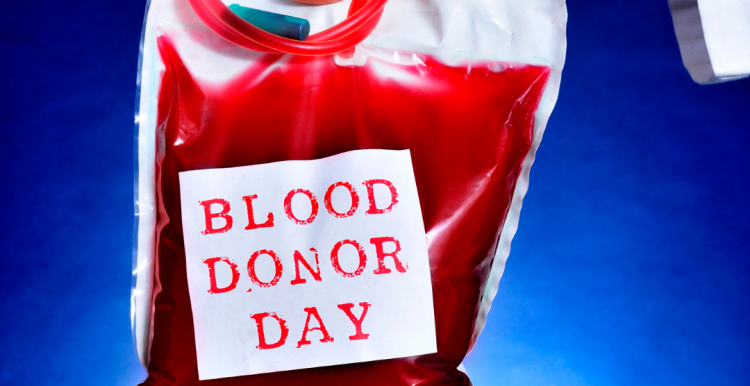Become a real life hero by giving blood today!
Giving blood saves lives. The blood you give is a lifeline in an emergency, and for people who need long term treatments.

Why do we need you to give blood?
Blood donors are needed from all backgrounds to ensure there is the right blood available for everyone who need it.
To be able to donate blood, you must:
- Be generally fit and well
- Be aged between 17 and 65
- Weigh between 7 stone 12 lbs (50kg) and 25 stone (158kg)
- Have suitable veins
- Meet all donor eligibility criteria
Sometimes, certain conditions or illnesses mean a person cannot donate blood. You cannot donate if you:
- Have had most types of cancer
- Have some heart conditions
- Have received blood, platelets, plasma or any other blood products after 1st January 1980
- Have tested positive for HIV
- Have had an organ transplant
- Are a hepatitis B carrier
- Are a hepatitis C carrier
- Have injected non prescribed drugs including body building and injectable tanning agents. You may be able to give if a doctor prescribed the drugs.
A full list of exceptions to being able to donate blood is available here.
How often can I give blood?
Men can give blood every 12 weeks and women can give blood every 16 weeks.
This is because men generally have higher iron levels than women.
What happens when I give blood?
There are 5 key steps when you give blood:
- Welcome and preparation
- Before donating blood, it is recommended that you eat regular meals, drink plenty of non-alcoholic fluid and avoid any vigorous exercise or exertion.
- You’ll need to remember to bring your completed Donor Safety Check form with you on the day if you receive one of these in the post.
- 500ml of fluid will be provided just before you donate. By drinking this over approximately 5 minutes, it will help with your wellbeing during and after donation.
- Health screening
- You will be called for a private health screening, where a donor carer will confirm your identity and ensure it is safe for you to donate.
- For your wellbeing, they will ensure you have enough haemoglobin (iron) in your blood before donating. A test, involving taking a small blood drop from your finger, will test your iron levels.
- Following health screening, you will be asked to sit in a different waiting area.
- Your donation
- When you are comfortable and ready at your donation chair, you will be asked your name, address and date of birth again.
- A blood pressure cuff will be placed on your arm to maintain a small amount of pressure during your donation.
- Your arm will be thoroughly examined to find a suitable vein before being cleaned with an antiseptic sponge.
- Following the insertion of the needle, you should be comfortable during your donation. You should alert a member of staff if you have any pain or discomfort.
- After donation refreshment
- A selection of drinks and snacks are available after you donate, and you are encouraged to relax for 15 minutes after your donation, and to have at least 2 drinks.
- At home
- If you become unwell within 2 weeks following your donation you should call the donor helpline immediately on 0300 123 23 23
I want to donate blood – where can I sign up?
To register as a blood donator, you can visit the NHS Blood and Transplant website.


